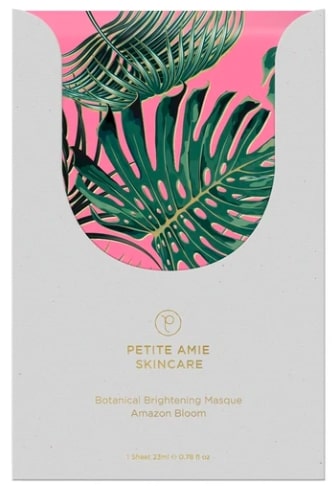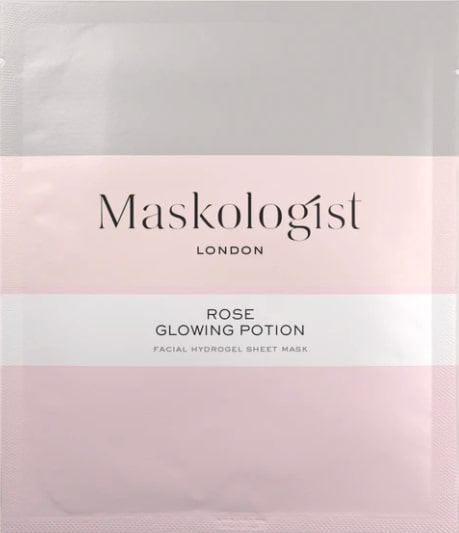For the past few weeks, I’ve been using a sheet mask every Friday night before going to bed. My skin looks and feels amazing when I wake up, and I’ve started to look forward to this little ritual. However, I couldn’t ignore the fact that using all of these sheet masks was adding up to a lot of waste. Tossing a pouch, used mask, and the plastic used to keep the mask in its shape into the trash every week felt so unnecessary.
I began doing some research on waste in the skincare and cosmetics industry, wondering just how bad the problem was and what I could do to minimize my own contributions to the issue. Although I tend to think that these issues are systemic and that trying to perfect our own consumption habits won’t solve the problem entirely, I would also prefer to support entrepreneurs who are aiming to create more sustainable products.
Predictably, cosmetics and skincare create a huge amount of waste. I was aware that microplastics in exfoliants and the plastic containers and tubes used as packaging often do end up in landfills, but the way sheet masks are produced and sold makes these products particularly egregious offenders.
Let’s say that you buy a moisturizer in a plastic tub. Yes, that plastic tub will probably end up in the trash. However, you’ll get at least a few month’s worth of uses out of that moisturizer. On the other hand, when you use a single sheet mask, you have to throw out the packaging—and if this is a consistent part of your routine, you’ll be doing it once or twice a week. Plus, you can’t save the mask and use it again. After fifteen minutes on your face, it’s going in the garbage.
One solution? Adjusting your routine so that you don’t need to use sheet masks. Perhaps you could add a new moisturizer to your usual routine that helps your skin stay super hydrated without the use of masks. Or maybe you could create DIY masks from ingredients you can find in your own kitchen. For the most similar experience, you can making your own sheet masks with a few serums and a silicone reusable mask (like Mary did here) or a washable muslin cloth.
Personally, I don’t want to give up my Friday night sheet mask ritual, and I don’t necessarily trust myself to combine the ingredients that will give me the desired results for my skin—I’d rather leave that to the experts! So I began seeking out sheet masks that were more eco-friendly.
If you feel the same way I do, you could look for sheet masks that are not packaged for single-use—if you buy one large box, you’ll be creating far less waste. There are also some recyclable or compostable sheet masks on the market nowadays. It can be tough to find sheet masks that are either recyclable or compostable with vegan ingredients and recyclable packaging, but I did find a couple that fit the bill, and I’m very interested in trying them out in the coming weeks!

The Botanical Brightening Masque by Petite Amie Skincare is made with 100% vegan ingredients, and you can recycle both the mask and the packaging. It does not come with a plastic insert. This is a brightening mask that contains Vitamin C (one of my favorite ingredients for brightening my skin and fading acne scars and discoloration) and niacinamide, along with several other plant extracts. Personally, this mask looks like it checks all of my skincare boxes, and I can’t wait to give it a try!

I’m also thinking about giving hydrogel masks a try. You can simply dissolve a hydrogel mask in water when you’re done using it, so it’s a great alternative to throwing out a sheet mask! The Rose Glowing Potion Hydrogel Sheet Mask by Maskologist is made with completely vegan ingredients. It is infused with rose petal oils and extracts to moisturize and hydrate your skin. If this mask works well for your skin, you have the option to purchase four masks in one recyclable package, which will definitely help you cut down on waste.
Overall, it’s true that your typical sheet mask is not the most eco-friendly skincare product on the market. And if you want to find a truly sustainable sheet mask, you’ll probably have to do a little research and order them online—chances are, you won’t be able to walk into a local drugstore or cosmetics shop and find them sitting on the shelves. Hopefully, the eco-friendly alternatives will catch on, and you can move towards a low-waste skincare routine!
Also by Jane: Can Spearmint Tea Clear Your Hormonal Breakouts? The Results Of My Self-Experiment
__
Photo: Pexels; respective brands





